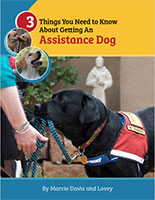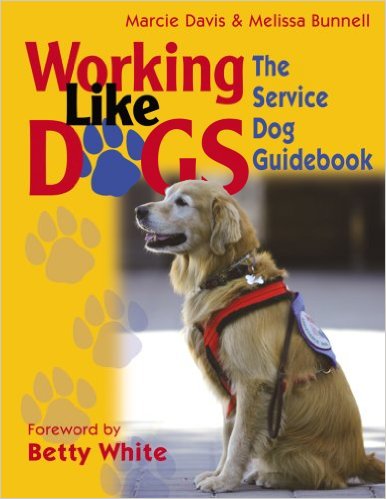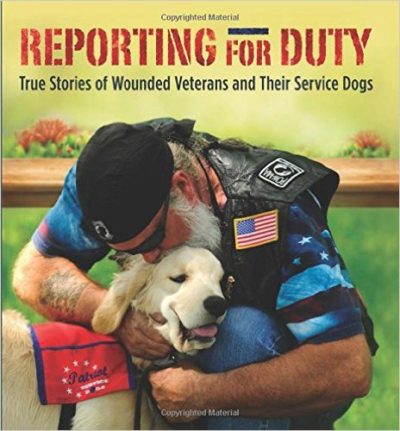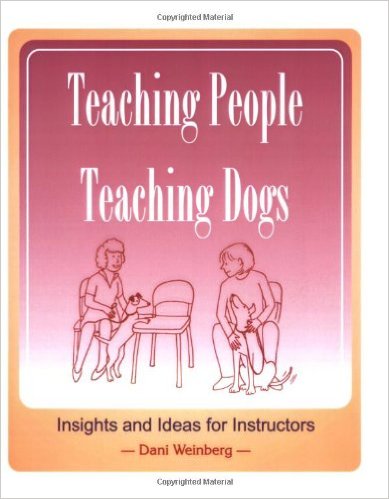Working Dog Resources
What are the 3 things You Need to Know About Getting an Assistance Dog?
 Are you thinking about getting an assistance dog and you don’t know where to begin? For over 25 years, I have been partnered with assistance dogs. As a person with a disability who uses a wheelchair, getting my first assistance dog changed my life. It increased my independence, employment opportunities and overall quality of life. It’s my pleasure to briefly share with you some of the lessons that I’ve learned in this FREE document.
Are you thinking about getting an assistance dog and you don’t know where to begin? For over 25 years, I have been partnered with assistance dogs. As a person with a disability who uses a wheelchair, getting my first assistance dog changed my life. It increased my independence, employment opportunities and overall quality of life. It’s my pleasure to briefly share with you some of the lessons that I’ve learned in this FREE document.Need the latest FAQs about service dogs?
The United States Department of Justice Civil Rights Division Disability Rights Section provides a helpful document that gives answers to frequently asked questions about service animals and the Americans with Disabilities Act.
The Fair Housing Act is a federal law that protects people from discrimination when they are renting, buying, or securing financing for any housing. This law states that any person with a mental or physical disability cannot be turned away from housing with their certified service animal or emotional support animals. This includes buildings and apartments that have a “no pets policy” in place. Landlords and apartment managers are required to make a “reasonable accommodation” for both service and emotional support animals.
For additional information, please visit the U.S. Department of Housing and Urban Development (HUD) website. You might also like to check out their publication on Service Animals and Assistance Animals for People with Disabilities in Housing and HUD-Funded Programs.
Where can I find an assistance dog organization?
Do you love to travel with your working dog? Get our free Mobile App
Need more travel information?
If you are traveling internationally, contact your local veterinarian right away to assist with the travel process and document preparation.
Also, whether traveling domestically or internationally, when purchasing your tickets, communicate your needs to the airline so there are no surprises for you or the airline.
Another great resource is the United States Department of Transportation Publication Air Travel with Service Animals. For assistance contact DOT’s Disability Hotline at 1-800-778-4838 Monday – Friday 9:00am – 5:00pm Eastern Time except federal holidays.
How do I celebrate International Assistance Dog Week?
Support International Assistance Dog Week by buying gifts at our Cafe Press store. International Assistance Dog Week (IADW) – Marcie founded International Assistance Dog to recognize all the devoted, hardworking assistance dogs helping individuals live more independent lives. IADW recognizes and honors assistance dogs, raises awareness and educates the public about assistance dogs, honors puppy raisers and trainers and recognizes heroic deeds performed by assistance dogs in our communities. It is celebrated in over 30 countries! For more information, check out assistancedogweek.org.
Are you struggling after the loss of your working dog?
- Cornell University Pet Loss Support Hotline: (607) 253-3932
- Michigan State University Pet Loss Support Hotline: (517) 432-2696
- Tufts University Pet Loss Hotline: (508) 839-7966
- Virginia-Maryland Regional College of Veterinary Medicine Pet Loss Hotline: (540) 231-8038
If you have faced this monumental loss or you are anticipating this loss, we would love to hear from you and support you as you say good-bye to your canine partner and move forward without him or her.
Service Dog Facts
A service animal is not a pet under federal law. According to the Department of Justice updates to the Americans with Disabilities Act (ADA),that took effect March 15, 2011, a “service animal” is limited to a dog that has been individually trained to do work or perform tasks for an individual with a disability. Some states have legislation that further defines a service animal.
Frequently Asked Questions about Services Animals and the ADA from the U.S. Department of Justice Civil Rights Division Disability Rights Section.
Types of Service Dogs
This is only a partial list of Service Dogs:
- Guide Dog or Dog Guide – Assist people with vision loss.
- Mobility Dog – Retrieve items, open doors, push buttons, also assisting people with disabilities with walking, balance and transferring from place to place.
- Hearing Alert – Assist people with a hearing loss to sounds.
- Seizure Alert/Seizure Response – Also known as Medical Alert-alerts to oncoming seizures and is trained to respond to seizures such as “Get Help” or stay with the person.
- Medical Alert/Medical Response – Alerts to oncoming medical conditions, such as heart attack, stroke, diabetes, epilepsy, panic attack, anxiety attack, post traumatic stress disorder.
Human Etiquette Around Assistance Dogs
- Do not touch the Service Dog, or the person it assists, without permission.
- Do not make noises at the Service Dog; it may distract the animal from doing its job.
- Do not feed the Service Dog; it may disrupt his/her schedule.
- Do not be offended if the person does not feel like discussing his/her disability or the assistance the Service Animal provides. Not everyone wants to be a walking-talking “show and tell” exhibit.






